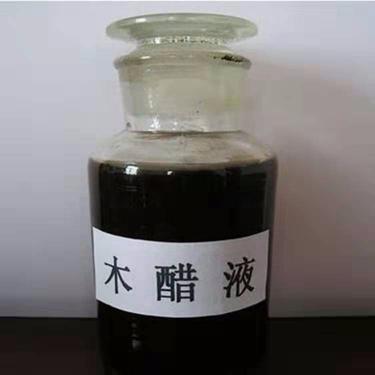In terms of soil improvement, Wood vinegar Like charcoal, it plays a very important role. Only a few of the wood vinegar can be absorbed by crops as a nutritional supplement, and only a small part of the substances with insecticidal effect. However, wood vinegar has a role that cannot be replaced by chemical fertilizers.
Not only that, if the wood vinegar can be used correctly, it can make the absorption performance of fertilizer better and the effect better, and it can also reduce plant diseases and pests. Spraying wood vinegar in soil can not only promote the growth of crop roots, but also improve the soil environment and promote the reproduction of useful microorganisms.
Use 10 to 30 times of wood vinegar in the open land and 100 to 200 times of wood vinegar in the growing period, and irrigate in the deep soil; It can also be mixed with farmyard manure 50-100 times in the field. It can increase the propagation of beneficial microorganisms, promote crop germination and root system development, thus promoting crop growth, and prevent and control soil borne diseases, such as inhibiting or killing pathogenic fungi such as pathogenic fungi, penicillium, Rhizoctonia, Sclerotinia sclerotiorum, Fusarium, etc. It can also prevent and control diseases and pests such as nematodes, regulate soil pH, purify and improve soil. Especially for saline alkali land, the effect of soil improvement is more obvious.
Spray on leaves as micro fertilizer
Wood vinegar can be directly sprayed on plant leaves as micro fertilizer, which can promote photosynthesis, increase leaf growth, slow down leaf senescence, prevent and treat diseases and pests. General crops are sprayed with about 600 times, rice with 300-500 times, and sexual crops such as watermelon, cantaloupe, melon, loofah, sponge gourd, papaya, pomelo at young fruit stage with about 800-1000 times. Pears should avoid using high concentration wood vinegar before bagging to avoid damaging the peel.








